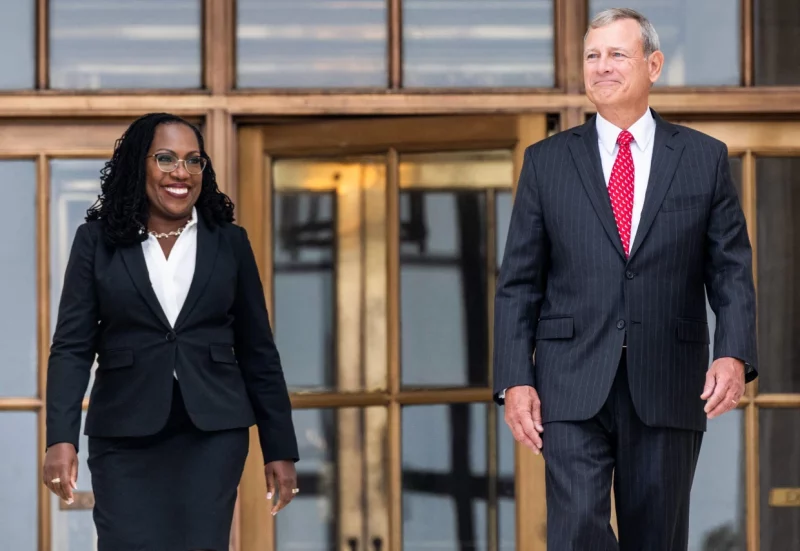Justice Jackson makes waves in first Supreme Court arguments
Share
Explore Our Galleries
Breaking News!
Today's news and culture by Black and other reporters in the Black and mainstream media.
Ways to Support ABHM?
By Lawrence Hurley, NBC News

WASHINGTON — As the Supreme Court on Tuesday weighed a conservative attempt to weaken the landmark Voting Rights Act, enacted in 1965 to protect minority voters, the first Black woman to serve on the Supreme Court delivered a history lesson on the divisive issue of race in the United States.
Justice Ketanji Brown Jackson, in just her second day on the bench, spoke about the enactment of the Constitution’s 14th Amendment, stressing how its aim was to redress historic harms to Black people in the aftermath of the Civil War and the end of slavery. It was a symbolic moment in a courtroom in which only three Black justices have ever sat.
Exploring the history that lurks in the background of the dispute over Alabama’s congressional districts map, Jackson said that “the entire point of the amendment was to secure rights of the freed former slaves.” As a result, she wondered, how could the state be barred from considering race when deciding whether more majority Black districts should be drawn?
Her intervention in the midst of an oral argument on Alabama’s defense of its map that a lower court said discriminated against Black voters was just one example of Jackson’s active role in her early days on the high court.
Sometimes, new justices take a back seat in their first few arguments as they settle in, although the last three appointees before Jackson — conservatives Neil Gorsuch, Brett Kavanaugh and Amy Coney Barrett — all asked questions in their debut oral arguments.
“I’m delighted to see that Justice Jackson is showing no reticence about entering the fray,” Sherrilyn Ifill, a prominent civil rights lawyer, told NBC News. “Her tone is upbeat and respectful, but she is tough, no nonsense and demanding. This was as impressive a debut as I’ve seen of a new justice in my more than 30 years of court-watching.”
We previously covered Justice Jackson’s confirmation.









Comments Are Welcome
Note: We moderate submissions in order to create a space for meaningful dialogue, a space where museum visitors – adults and youth –– can exchange informed, thoughtful, and relevant comments that add value to our exhibits.
Racial slurs, personal attacks, obscenity, profanity, and SHOUTING do not meet the above standard. Such comments are posted in the exhibit Hateful Speech. Commercial promotions, impersonations, and incoherent comments likewise fail to meet our goals, so will not be posted. Submissions longer than 120 words will be shortened.
See our full Comments Policy here.